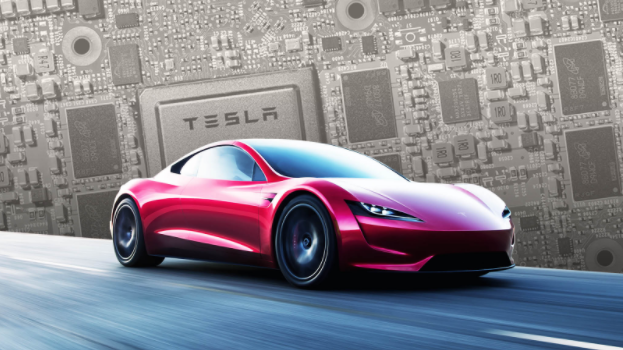How Car Brands Position their EVs online
Mar 25, 2021
Industry Trends

The electric vehicle industry has grown rapidly over the last couple of years, but at a different pace in each region. China leads the way with the most EV owners, followed by Europe and the US. Environmental policies and battery developments are accelerating the rate of innovation.
Consumers have become increasingly environmentally conscious, ultimately impacting the popularity and demand of electric vehicles. However, key barriers formed by consumer misconceptions around costs, driving range anxiety, charging stations and home-charging facilities have slowed the growth of the market.
Tesla has forced the traditional automotive industry to not only to develop technology, but reconsider their branding and marketing strategies. Many car manufacturers have developed their own electric sub-brands in order to appeal to potentially EV buyers, for example VW’s ID range. Other car manufacturers, such as Volvo, have begun transitioning their entire fleet into hybrid or electric vehicles.
Given the increasing competition, we’ve analysed the key differences in how car brands position their electric vehicles online.
How Tesla Positions its Electric Vehicles
Tesla has successfully positioned itself as more than just an electric vehicle company and focuses on its advanced innovation and technology across its platforms. It primarily deploys content across Twitter, followed by Instagram, YouTube and LinkedIn. This content focuses on the technology behind the cars and shows the inside workings of Tesla factories as well as how-to videos for particular features. .

Tesla has created a strong and loyal community of Tesla owners and has its own engagement platform to inform owners of localised events. Tesla’s prominence and status generates organic content from automotive and tech KOLs. The brand also takes a consumer-centric approach by reposting content created by Tesla owners.
You can now buy a Tesla with Bitcoin
— Elon Musk (@elonmusk) March 24, 2021
There is little to no evidence of KOL marketing activities on any social platform. Elon Musk’s popularity has transformed the brand’s social presence. He acts as the face of the brand and interacts directly and personally with KOLs globally on Twitter.
How Polestar Positions its Electric Vehicles
Polestar has positioned itself as a luxury long-range EV brand and focuses its messaging on the sleek design of its vehicles and unparalleled driving experience. Polestar’s social channels take a more editorial approach, almost acting as a virtual showroom. It curates slick content from photography KOLs, while emphasising messaging around design and performance.
 Polestar’s content strategy is primarily focused on Instagram, followed by Twitter, YouTube and Facebook. Supporting messaging for the brand includes sustainability and technological advancements.
Polestar’s content strategy is primarily focused on Instagram, followed by Twitter, YouTube and Facebook. Supporting messaging for the brand includes sustainability and technological advancements.
It’s #Polestar Climate Day. We’re all taking time out today to focus on achieving our climate goals.#PolestarCars #PolestarCrew pic.twitter.com/6OwqyzBQ1f
— Polestar (@PolestarCars) March 16, 2021
Polestar leverages a range of KOLs with large audiences across lifestyle, design and sustainability passion points. The brand has also leveraged photography KOLs to produce aspirational content that can subsequently be deployed across its own socials.
How VW Positions its Electric Vehicles
VW continues its brand messaging as an accessible, family oriented option when showcasing its EVs. VW has its own electric vehicle range, ID, and also makes an electric version of one of its most popular car models, the e-Golf.
 The ID range doesn’t have its own separate channels, but marketing activities around the range are integrated into activities around traditional automotives. Twitter is the main social platform VW uses to promote its EVs, with the majority of content there surrounding its electric vehicles. It recently promoted its zero emissions initiative with the hashtag #WayToZero. VW is informative about the cars and shares how they are better for the planet and reducing personal carbon footprints. The content posted on Twitter is also deployed to the brand’s Facebook. For Instagram, VW uses video clips from existing advertisements and promotion imagery to showcase its EVs on social media.
The ID range doesn’t have its own separate channels, but marketing activities around the range are integrated into activities around traditional automotives. Twitter is the main social platform VW uses to promote its EVs, with the majority of content there surrounding its electric vehicles. It recently promoted its zero emissions initiative with the hashtag #WayToZero. VW is informative about the cars and shares how they are better for the planet and reducing personal carbon footprints. The content posted on Twitter is also deployed to the brand’s Facebook. For Instagram, VW uses video clips from existing advertisements and promotion imagery to showcase its EVs on social media.
Go further in Life. The Volkswagen ID.3 Life has the longest WLTP range (263 miles) of any all-electric car on the road right now that’s eligible for the Government’s OZEV grant, worth up to £2,500. https://t.co/lBF6QDqnTx #ID3UK #WayToZero pic.twitter.com/Oel6lNuc69
— Volkswagen UK (@UKVolkswagen) March 24, 2021
There is little to no evidence of KOL marketing activities. Since the brand is not positioned as a luxury brand, there is less content produced organically by social media users.
How BMW Positions its Electric Vehicles
BMW has completely separate social channels for its BMW i Series EV range. The messaging around its EVs keeps the BMW heritage and luxury of traditional BMW automotives, but with a focus on the future. The i Series is a BMW reinvention.
 On Twitter, the BMW i Series is positioned as a sustainable luxury, with a large focus on creating an environmentally friendly lifestyle. BMW positions its i Series as an innovative, trendsetting and desirable line by leveraging prominent individuals, however these tend to lack a genuine affinity with the brand and can often appear inauthentic. There is a lot of content produced organically by BMW i Series owners and car fans.
On Twitter, the BMW i Series is positioned as a sustainable luxury, with a large focus on creating an environmentally friendly lifestyle. BMW positions its i Series as an innovative, trendsetting and desirable line by leveraging prominent individuals, however these tend to lack a genuine affinity with the brand and can often appear inauthentic. There is a lot of content produced organically by BMW i Series owners and car fans.
A clear and minimalist design does not mean relinquishment. And neither does the use of leather mean to stress the environment: the natural leather in the first-ever BMW iX, tanned with olive leaf extract.#THEiX #BornElectric #BMWi pic.twitter.com/acv8FKr92d
— BMW i (@BMWi) March 24, 2021
BMW hosts a yearly campaign for its i Series at Coachella called ‘Road to Coachella’ to target young and affluent millennials. For this campaign, BMW relies on launching activations and enlisting high profile influencers and celebrities within the entertainment industry in order to remain culturally relevant to a younger audience.
How NIO positions its Electric Vehicles
NIO electric vehicles that are not yet available in the UK. NIO uses global accounts to position its EVs, opting for one central form of communication rather than region-specific. NIO focuses on positioning itself as an industry leader for developing technology. It focuses heavily on the tech advancements used in its cars that help create a luxurious and enjoyable driving experience. It also pushes the AI present in all its vehicles, NOMI.
 The primary social platforms used are Twitter, Facebook and LinkedIn—Instagram is not updated as frequently. NIO uses its three main channels to announce panels and talks that help position the brands as a tech and EV leader. The content is factual and informative. Instagram posts include promotional imagery that helps positing the brands as a sleek, tech-forward automotive brand.
The primary social platforms used are Twitter, Facebook and LinkedIn—Instagram is not updated as frequently. NIO uses its three main channels to announce panels and talks that help position the brands as a tech and EV leader. The content is factual and informative. Instagram posts include promotional imagery that helps positing the brands as a sleek, tech-forward automotive brand.
See how NIO’s digital assistant, #NOMI, uses #AI technology to help drivers: Revealed in @AI_AInstitute fireside chat TODAY at 12:15pm PT https://t.co/1q7la9foqW pic.twitter.com/txogVnAfHS
— NIO (@NIOGlobal) March 16, 2021
There is no obvious evidence of KOL activity and the brand is not yet popular enough in Europe to have a fair amount of user generated content.
Conclusions
The most successful electric vehicle brands have been able to position themselves as a positive lifestyle choice and are able to thrive off owner pride. Tesla has created a loyal community of owners, and encourages engagement from owners by creating special, regional events for owners to participate in and meet other Tesla fans. As a result of this, Tesla has little need to push its vehicles on social media—its reputation and high positioning is enough.
Automotive brands don’t seem to have a huge push on social media in general, let alone for their EVs. To gain an advantage over competitors, developing a strong social media strategy could be beneficial for aspiring EV brands.
While a strong social media presence and strategy could give EV brands a competitive advantage, it is important to remember that automotive influencers are not loyal to particular brands. EV brands should carefully consider the influencers and KOLs they choose to sponsor as content created by them can often appear ingenuine.
At present, no EV brand is pushing marketing boundaries. All activity is safe and considered, meaning there aren’t many organic conversations being created by consumers. EV brands should consider creating exciting discussion points that will interest potential customers. Furthermore, they should consider marketing towards the next generation of car buyers rather than the current as they are likely to be more focused on the environmental benefits of electric cars.
Our Influencer marketing agency and Social agency are located worldwide, with our agency network based in the USA, UK, UAE and China.
If you want to receive our industry insights, visit our Influencer Marketing & Social Media blogs here.
[cta]
Popular Blogs
Most Popular Instagram Hashtags | Tiktok Hashtags | Instagram Monetization | Facebook Banner Size | Snapchat Influencers | Most Subscribed Youtubers | Best Time to Post on Youtube | UK Twitch Streamers | Female Twitch Streamers | Popular Tiktok Songs | Male Tiktok Influencers | Lgbtq Tiktok Influencers | The Rise and Fall of Clubhouse | Influencer Marketing on Clubhouse | LiketoKnowit | Pretty Little Thing Instagram| Social Marketing Agency
Social And Influencer Marketing News + Insights
Get in touch
We'll show you how to start powerful conversation, drive social engagement, build your brand, hit sales targets or meet other goals you have, wherever you are in the world.
Work with us





